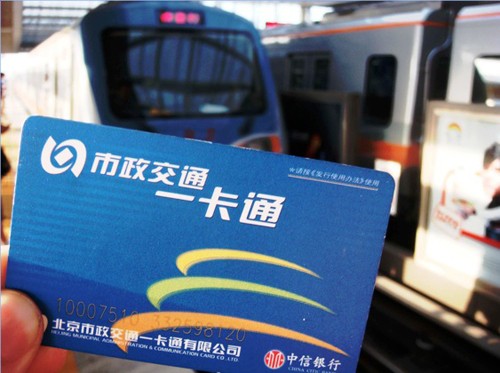Beijing will raise public transport fares starting Dec. 28. The fare increase will almost double the current prices, but several discount schemes will be implemented.
According to the transport fare adjustment plan, commuters will be paying a minimum of 3 yuan for a subway ride under 6 kilometers, which is higher than the current flat-fee of 2 yuan with no limit on train transfers. The new scheme excludes the rail line linking Beijing to airports with a price of 25 yuan for a one-way trip.
For subway rides longer than 6 kilometers up to 12, 4 yuan will be charged. For 12 up to 22 kilometers, the fare would be 5 yuan, and 6 yuan will be charged for 22 up to 32-kilometer rides. An additional yuan will be charged for each extra 20 kilometers for subway rides exceeding the 32-kilometer mark.
Bus riders will be charged 2 yuan for rides under 10 kilometers, and an additional yuan for each extra 5 kilometers. A 75-percent discount will be given to student card users, while smart card holders will get a 50-percent discount.
Currently, bus fares in Beijing cost only 1 yuan and 0.4 yuan for smart card users.
Smart card holders who use the subway will be charged full fare for the first 100 yuan every month; the following 50 yuan will have a 20-percent discount, and a 50-percent discount will be given for 150 yuan up to 400 yuan.
According to a Beijing Municipal Development and Reform Commision official, the average price of Beijing's subways would be around 4.3 yuan, while the bus fare average would be around 1.3 yuan after the fare increase, and would cover nearly 50 percent and 38 percent of their actual costs, respectively.
The Beijing fare increase was finalized last month in a public hearing.
Beijing's subway rides reached 3.2 billion in 2013, and its subsidies surged 20 billion yuan from 13.5 billion yuan in 2010.






















